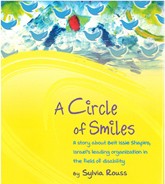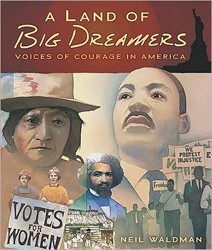Echo by veteran author Pam Muñoz Ryan uniquely weaves in a sense of wonder with a musical twist while exploring hardships of the twentieth century. A combination of historical fiction and magical realism, the novel is broken up into three distinct stories linked by a magical harmonica. As expected, Muñoz Ryan delivers an engaging story with unique characters, offering readers an emotional journey through their lives.
In the brief prologue, we meet Otto. Lost in the forest, he stumbles across a trio of enchanting sisters who bestow upon him a magical harmonica. Years later, the very same magical instrument finds its way into the hands of three musically inclined kids in very different but all very trying situations.
First there is Friedrich, a German boy dealing with the effects of the Nazi regime and the tension it creates within his own family. The next story depicts Mike, a Depression-era orphan with a fierce desire to create a future for himself and his little brother. Last is the story of Ivy, a California girl and daughter of a farm worker who experiences racism due to her Mexican heritage as she witnesses the unjust treatment of Japanese Americans in her new neighborhood. Muñoz Ryan provides insight into some of the major historical occurrences of the twentieth century including World War II, the bombing of Pearl Harbor, and Japanese internment camps. Ultimately, the book depicts the importance of familial bonds and the necessity of hope even during the darkest of times. The full-circle ending is a bit too coincidental but does deliver a positive contrast to the heavier themes of the novel and will appeal to young readers.
Although the length of Echo may appear daunting for middle grade fiction, the trilogy-style format enables readers to easily break the novel down into sizable chunks.
The Jewish content in Echo is limited. It consists of a few references to concentration camps and the mistreatment of Jews during the war. However, it is still a worthy read of outstanding literary quality and is highly recommended for ages 10 – 14.





